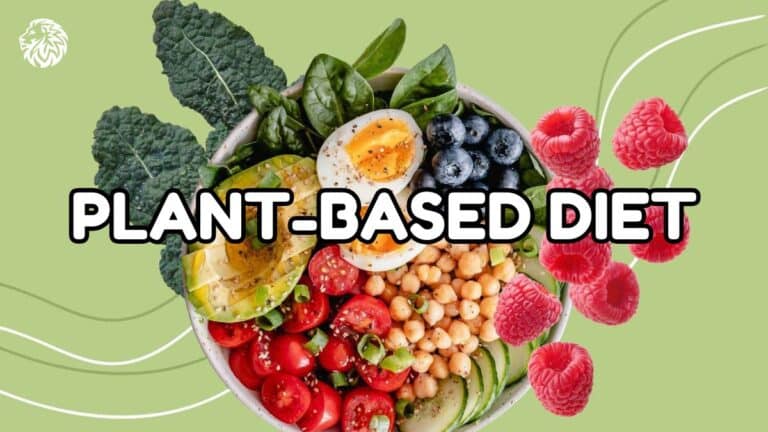Benefits of Plant-Based Diet for Diabetes
Switching to a plant-based diet could be just what the doctor ordered for keeping diabetes in check. It’s not just about eating more salads—this lifestyle can have a serious impact, from potentially putting diabetes into remission to making your body respond better to insulin.
Achieving Diabetes Remission
Jumping onto a whole-food, plant-heavy diet can lead to some exciting outcomes if you’re dealing with diabetes. There’s research showing 37% of folks managed to put their diabetes into remission by sticking to this type of diet (Medical News Today). Most of these participants were around 71.5 years old and didn’t have to count calories or fast. It’s pretty powerful stuff, showing how a whole food plant-based diet can tackle type 2 diabetes head-on.
| Study Group | Remission Rate |
|---|---|
| Plant-Based Diet | 37% |
| Other Diets | Less than 20% |
What makes this work is the high-fiber, low-fat goodness in a plant-based diet. It keeps blood sugar steady and helps cut back on those meds, making it a solid way to handle diabetes (American Journal of Lifestyle Medicine).
Improving Insulin Sensitivity
Another bonus of eating plants is boosting how your body handles insulin. For folks with type 2 diabetes, insulin resistance is a pesky issue, but a plant-based menu can help tackle it. It trims down the fat crowding around liver and muscle cells, making them more sensitive to insulin (PMC).
A study mashup of six random trials found that going vegetarian cuts glycated hemoglobin (HbA1c) by 0.4% more than other diabetes-specific diets (PMC). In simple terms, plant-based diets don’t just stabilize your blood sugar, they help keep your body’s sugar control on point.
| Diet Type | HbA1c Reduction |
|---|---|
| Vegetarian/Vegan | 0.4% Greater |
| Other Diets | Standard Reduction |
Plus, rocking a vegan diet might rev up your nerves and ease that annoying neuropathic pain that often tags along with diabetes (PMC).
Going plant-based isn’t just about diabetes, though—it’s a ticket to all-round better health. Dig into more plant-based diet benefits and make your health top-notch one bite at a time.
Plant-Based Diet for Type 2 Diabetes
Thinking about going green with your meals? Especially important if you’re managing Type 2 Diabetes! Here’s a look at how munching on plants could keep that sugar in check and help shed some pounds, boosting your well-being without a sweat.
Effects on Blood Sugar Levels
Jumping onto a plant-based diet train might just steady your blood sugar levels. Diets loaded with fiber and light on fat seem to wave a magic wand, nudging you closer to putting a lid on Type 2 Diabetes. Filling your plate with stuff like fruits, veggies, grains, and beans can help keep those sugar spikes at bay.
Research gives a thumbs up too! A bunch of studies showed that folks on plant-heavy diets saw their HbA1c (a fancy term for blood sugar over months) drop by about 0.4% more than those on other diabetic diets. Die-hard vegans saw their levels dip even more, by 1.23%, compared to just 0.38% for the old-school, portion-watching eaters.
Check out how different eats stack up:
| Diet Type | HbA1c Drop (%) |
|---|---|
| Old-School Diet | 0.38 |
| Veggie Diet | 0.40 |
| Vegan Diet | 1.23 |
Role in Weight Loss
Wanna lose weight? Plants could be your secret weapon. They’re low in calories and bad fats, letting you eat till you’re full without counting every bite. Shedding pounds this way can make your body play nice with insulin, helping tame those sugar levels.
Fibery goodness in plant foods keeps you feeling full, cutting the odds you’ll reach for a second serving. Don’t forget to mix up your proteins, so you meet all the good stuff your body needs! For savvier meal ideas, peek at our guide on plant-based protein sources and how to make meal prepping a no-brainer vegan meal prep.
Thinking about giving a plant-based diet a whirl to handle diabetes and shed weight? We’ve got some nifty guides on plant-based diet perks and weight loss with plants to get you rolling.
Jumping on the plant bandwagon can give you the upper hand with diabetes while nudging you towards a healthier, lighter you. It’s a win-win for your body and taste buds!
Nutritional Aspects of Plant-Based Diets
Jumping on the plant-based train? You’re not alone. It’s a diet choice that could work wonders, especially if you’re looking to manage diabetes. Getting a handle on the nutritional bits of this menu can make all the difference in reaching peak health.
High-Fiber, Low-Fat Foods
When you’re looking at a plant-based diet, it’s like hitting the jackpot with high-fiber, low-fat goodies. Chowing down on these can give your insulin sensitivity a big thumbs-up and help keep a lid on those pesky blood sugar levels (Medical News Today). Fiber just loves to slow down sugar absorption, keeping those glucose spikes at bay.
Table 1: Common High-Fiber, Low-Fat Plant Foods
| Food Item | Fiber Content (g per serving) | Fat Content (g per serving) |
|---|---|---|
| Lentils (1 cup cooked) | 15.6 | 0.4 |
| Chickpeas (1 cup cooked) | 12.5 | 4.3 |
| Broccoli (1 cup raw) | 2.4 | 0.3 |
| Apples (1 medium) | 4.4 | 0.3 |
| Whole Grain Bread (1 slice) | 2.0 | 1.0 |
Benefits of High-Fiber Foods:
- Giving Insulin a Boost: Fiber slows down sugar so your body doesn’t go haywire post-dinner.
- Less Sugar Drama: Keeps those sugar spikes from turning your day upside-down.
You’ll find more about what to munch on in our plant-based nutrition guide.
Essential Micronutrients
Plant munching isn’t just about fiber. It’s packing some serious heat with essential extras that help you handle diabetes like a pro. Vitamins and minerals like Vitamin D and magnesium are the unsung heroes of our well-being crew.
Table 2: Key Micronutrients in Plant-Based Foods
| Micronutrient | Key Plant Sources | Benefits |
|---|---|---|
| Vitamin D | Fortified soy milk, mushrooms | Helps keep bones and immunity rocking |
| Magnesium | Spinach, quinoa, almonds | Keeps blood sugar in check, your muscles happy |
| Iron | Lentils, chickpeas, tofu | Carries the oxygen baton in your blood |
| Vitamin B12 | Fortified plant milks, nutritional yeast | Does wonders for nerves and fuels your energy |
Vegan eating doesn’t just look good on Instagram; it works its magic on nervous systems dealing with diabetes (PMC).
Points to Consider:
- Vitamin D: Go outside or look for forged foods packed with D.
- Vitamin B12: Check out fortified plant-based choices to cover your needs.
Kickstart your plant-powered adventures with sneak peeks from our plant-based diet for beginners.
Mix these fiber-packed, fat-lacking foods with a dollop of those handy-dandy micronutrients, and tackling diabetes could become less of a struggle. Check out our easy plant-based recipes to jump in with both feet.
Stir up more plant-based secrets by visiting our plant-based diet benefits section.
Implementing a Plant-Based Diet
Switching to a plant-based diet can do wonders for your health, particularly if diabetes is something you deal with. To kick things off, you’ll want to keep an eye on those carbs and mix up your protein options a bit.
Balancing Carb Intake
Carbs are a big deal when it comes to managing diabetes. But here’s the kicker: not all carbs are the same. The winners? Complex carbs. These are your buddies for keeping steady blood sugar levels. Think whole grains, legumes, and those trusty starchy veggies. They’re digested slower, helping avoid those pesky sugar rushes.
| Food Type | Example Foods | Carbohydrate Content (per 100g) |
|---|---|---|
| Whole Grains | Quinoa, Brown Rice, Oats | 17-23g |
| Legumes | Chickpeas, Lentils, Black Beans | 20-27g |
| Starchy Vegetables | Sweet Potatoes, Corn, Peas | 15-20g |
Load up on these complex carbs to get a steady dose of energy all day long. Want more on sticking to a balanced diet? Check out our guide on the whole food plant-based diet.
Diversifying Protein Sources
Getting enough protein is another piece of the puzzle when it comes to a plant-based diet. Shake up your protein intake to hit those nutritional targets without needing animal products. As EatingWell suggests, pack your meals with a variety of proteins like seitan, different grains, legumes, nuts, and leafy greens to keep on top of it.
| Protein Source | Protein Content (per 100g) |
|---|---|
| Seitan | 25g |
| Quinoa | 4g |
| Black Beans | 9g |
| Almonds | 21g |
| Spinach | 2.9g |
Trying out these protein-rich choices can not only make meals exciting but also keep your nutrition balanced. Need a few more pointers? Peek at our piece on the best plant-based protein sources.
Adding a variety of proteins and keeping those carbs in check are two major steps in nailing a plant-based diet for diabetes management. Eager for more tips and tricks? Cruise through our all-in-one guide on how to start a plant-based diet and check out plant-based meal planning.
Managing Diabetes with Plant-Based Eating
Impact on Heart Health
Switching to a plant-centered diet can really boost your heart health and cut down those diabetes-related risks. Why? Well, plant-based meals are heart-friendly because they:
- Keep your blood sugar in check
- Help manage your weight
- Keep your cholesterol and blood pressure in a happy place
Foods from plants, especially when they’re whole and not heavily processed, bring a good dose of fiber, antioxidants, and magnesium to the table. These are like the superheroes for making your body’s insulin work better (PubMed Central). These diets skimp on stuff like saturated fat and specific things you find in meats that can make your body less responsive to insulin.
Research lets us know that folks chowing down on plant-based eats are less likely to end up dealing with heart-related issues like ischemic heart disease and high blood pressure. There’s also evidence suggesting these diets can slow down kidney disease, lower cholesterol numbers, and even help roll back coronary artery disease (PubMed) (NCBI).
Cutting Down Diabetes Problems
Moving over to a plant-based way of eating can seriously dial down problems linked to diabetes. Why does this work? Plant foods tend to:
- Give a boost to blood sugar control
- Cut down on insulin resistance
These perks come from loading up on fiber and antioxidants, while skipping the heavily processed stuff. The magnesium in these foods is no joke—it helps your body use insulin more effectively, which is a big deal when dealing with diabetes.
Dive into studies like the Adventist Health Study-2, and you’ll see a big drop in type 2 diabetes risk for people eating vegan or vegetarian. Vegans, in particular, have up to a 75% lower risk compared to those who eat meat (PMC).
Plus, eating plants regularly can bring down inflammation and lower chances of getting chronic kidney issues. The Atherosclerosis Risk and Communities Study backs this up, showing fewer risks of these troubles when sticking to plant-based diets (NCBI).
| Health Check | What Plants Do |
|---|---|
| Blood Sugar | Gets Better |
| Insulin Power | Boosted |
| Cholesterol | Takes a Dip |
| Swelling | Calmed Down |
| Kidney Health | Better Odds |
Curious how to make this food switch and tackle diabetes? Peek at our tips on getting started with plant-based eating and dive into plant-based nutrition for more.
Tips for Transitioning to a Plant-Based Diet
Addressing Iron and Vitamin B12
Switching to a plant-based diet can make it a bit tricky to get enough iron and vitamin B12, two nutrients your body really needs. Making sure you’re stocked up on these is super important, especially for keeping your diabetes in check and feeling your best.
Iron is like the magic ingredient for building strong red blood cells that carry oxygen. You can find it in leafy greens, whole grains, beans, and cereals that have a bit of extra boost. Pairing these with foods high in vitamin C, like oranges, bell peppers, or strawberries, can help your body soak up iron better.
| Plant-Based Iron Sources | Iron Content (mg per serving) |
|---|---|
| Spinach | 6.4 |
| Lentils | 6.6 |
| Quinoa | 2.8 |
| Fortified Cereals | 18 |
| Tofu | 3.4 |
Now, when it comes to vitamin B12, you mostly get that from animal products, but don’t worry. You can pick foods like fortified plant milks, cereals, soy goodies, and nutritional yeast to help fill the gap. If that’s not cutting it, think about a B12 supplement, just make sure to chat with your doctor first.
Monitoring Medication Adjustments
When you start eating more plants, something magical happens. It can really change how your body handles insulin and might help you lose a few pounds. This means your diabetes meds might need some tweaking. Keep a close eye on your blood sugar and stay in touch with your doctor as you make these changes.
Some studies have shown that folks who go low-fat and vegan see their A1c levels and LDL cholesterol get better. So, your doc might suggest adjusting your meds to make sure everything stays balanced.
As you take on this plant-based lifestyle, don’t miss out on checking resources like whole food plant-based diet, plant-based protein sources, and plant-based diet for diabetes for more ideas and meal inspiration. This will help you ease into healthier eating while keeping up with your nutritional needs and diabetes management.







